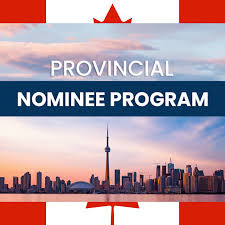Understanding Canada PR Eligibility
Canada offers various pathways for permanent residency (PR). Each path has specific requirements that applicants must meet. Below, we cover the main eligibility criteria for different programs.
Assessing Eligibility Requirements
To be eligible for Canadian PR, one must first assess their qualifications. Factors like age, work experience, education, and language skills play a crucial role. Different programs have unique criteria and point systems. It’s essential to gather detailed information and ensure all documentation is accurate and complete.
Federal Skilled Worker Program
The Federal Skilled Worker Program (FSWP) uses a points system to evaluate candidates. Points are awarded based on:
- Age: Points decrease as applicants age.
- Education: Higher degrees earn more points.
- Work Experience: Skilled experience in a relevant job.
- Language Ability: Proficiency in English or French.
- Adaptability: Additional points for family in Canada or previous Canadian experience.
A minimum score of 67 out of 100 is required to qualify under the FSWP.
Canadian Experience Class
The Canadian Experience Class (CEC) is designed for those with Canadian work experience. Key eligibility points include:
- Work Experience: At least 12 months of full-time skilled work in Canada within the last three years.
- Language Proficiency: Requires specific language scores in either English or French.
- Education: No education requirement but can increase CRS score.
This program is suited for temporary workers or students who’ve gained experience in Canada.
Federal Skilled Trades Program
The Federal Skilled Trades Program (FSTP) targets skilled tradespeople. Eligibility is based on:
- Skilled Work Experience: At least 24 months of relevant work experience within the last five years.
- Job Offer: A full-time job offer from a Canadian employer or a certificate of qualification in a skilled trade issued by a Canadian province or territory.
- Language Ability: Minimum benchmarks in English or French.
- Education: No education requirement but scoring higher on education can help in the CRS rankings.
This pathway is ideal for those specializing in trades such as industrial, electrical, construction, and maintenance.
Navigating the Application Process
Applying for Canadian permanent residency through Express Entry involves several steps. These include creating a profile, preparing documents, understanding the Comprehensive Ranking System (CRS), and responding to an invitation to apply.
Creating an Express Entry Profile
The first step is to create an Express Entry profile online. Applicants need to sign in to their account on the official website.
They must provide accurate information about their skills, work experience, language ability, education, and other details. All questions should be answered honestly and completely. Missing or inaccurate information can delay the process or lead to rejection. After submitting the profile, the system assigns a Comprehensive Ranking System (CRS) score based on the provided information.
Document Preparation
It’s critical to prepare and gather all necessary documents before applying. Applicants need valid passports, language test results, educational credential assessments, and proof of funds. For those claiming work experience, reference letters from past employers must include job titles, duties, and durations. Incomplete or incorrectly completed documentation can result in application delays or rejections.
Additionally, medical and police certificates may be required. Properly organizing these documents beforehand helps ensure a smooth application process.
Comprehensive Ranking System (CRS)
The CRS is a point-based system used to assess and score an applicant’s Express Entry profile. Several factors influence the score, such as age, education, work experience, and language proficiency. High-scoring candidates have a better chance of receiving an Invitation to Apply (ITA).
Candidates can improve their CRS score by enhancing their language abilities, gaining additional work experience, or securing a provincial nomination, which provides extra points. Regularly updating the profile with new information can also positively impact the CRS score.
Receiving an Invitation to Apply (ITA)
Candidates with the highest CRS scores are issued an ITA during regular draws from the Express Entry pool. An ITA allows the candidate to apply for permanent residency. Receiving an ITA means that the candidate has 60 days to submit a complete application for permanent residency through the online system.
This application must include all previously mentioned documents. It’s important to review and ensure all information is accurate before submission to avoid any complications in the final processing stages.
Alternative Immigration Streams
In addition to the standard immigration pathways, Canada offers several alternative streams for those seeking permanent residency. These include the Provincial Nominee Program (PNP), Family Sponsorship, and Business Immigration, each catering to different applicant profiles and needs.
Provincial Nominee Program (PNP)
The Provincial Nominee Program (PNP) allows Canadian provinces and territories to nominate individuals who wish to immigrate to Canada. These candidates must possess skills, education, and work experience that are crucial to the province’s economic needs.
Each province has its own PNP streams targeting students, business people, skilled workers, and semi-skilled workers. For example, Ontario focuses on tech workers, while British Columbia has programs for healthcare professionals.
Candidates need to apply to the provincial program where they want to live. If nominated, they can apply to the federal government for permanent residency. The Provincial Nominee Program is a crucial pathway for many immigrants.
Family Sponsorship
Another key pathway is Family Sponsorship. This program allows Canadian citizens and permanent residents to sponsor close family members. Eligible family members include spouses, common-law partners, dependent children, parents, and grandparents.
Sponsors must be at least 18 years old and demonstrate the financial ability to support their family member(s) in Canada. The sponsored person must also meet certain eligibility requirements such as health, security, and financial stability. This ensures immigrants have a strong support system upon arrival.
Family Sponsorship provides a streamlined route for families to reunite and build their lives together in Canada. More details can be found on the CanadaVisa website.
Business Immigration
Business Immigration targets individuals with business experience and significant personal net worth who can contribute to Canada’s economic development. There are several streams under this category, including the Start-Up Visa Program, Entrepreneur Programs, and Self-Employed Persons Program.
The Start-Up Visa Program is designed for entrepreneurs with innovative ideas that can create jobs for Canadians. Applicants must have support from a designated Canadian venture capital fund, angel investor group, or business incubator.
Additionally, Entrepreneur Programs offered by some provinces require candidates to establish or purchase a business. The Self-Employed Persons Program targets individuals who can become self-employed in cultural or athletic activities.
Successful applicants must demonstrate their ability to establish a business that will benefit Canada’s economy. Further information can be found in the guide to Canada’s Business Immigration pathways.


